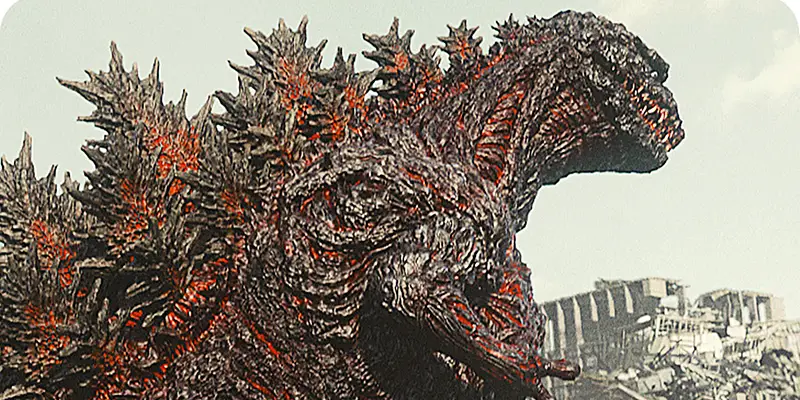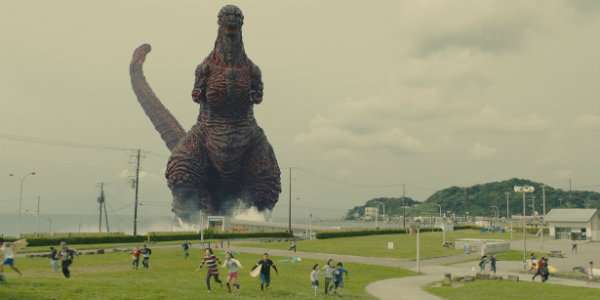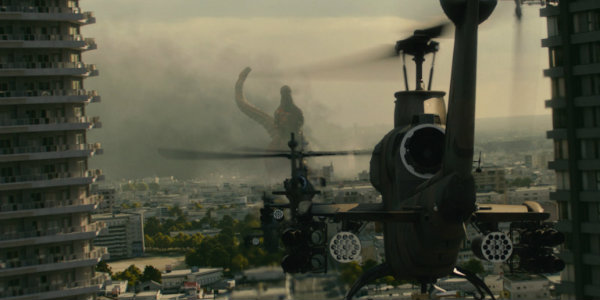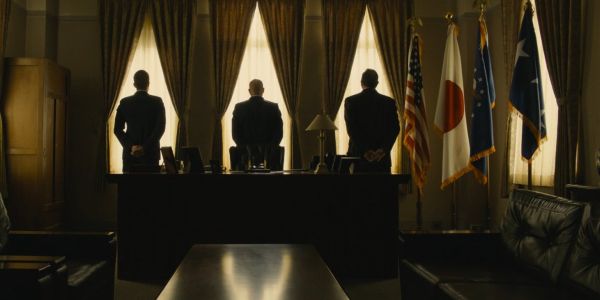SHIN GODZILLA: An Ecological Parable Retold

English Major, Film Buff, and Citizen of the World, Sean…
The Godzilla franchise has had a long and storied history, dating back to the original motion picture of 1954 directed by Ishirō Honda. Produced and distributed by famed Japanese film studio Toho, the original feature has spawned multiple franchise sequels over the years, from both its country of origin and the United States. Starting with the 1956 Japanese-American remake of Honda‘s original feature from only two years prior, Godzilla, King of the Monsters! served to rehash the basic formula of Honda‘s original ecological fable as an overblown disaster movie for Western audiences.
Sixty-two years later, the Kaiju film genre tradition that originated in Japan is alive and well around the world, with such recent features from the US as Guillermo del Toro‘s 2013 summer blockbuster event Pacific Rim and Welsh filmmaker Gareth Edwards’ Americanized Godzilla reboot for Warner Bros. Pictures from 2014. Yet the original series of Toho films starring the King of the Monsters has been absent for some eleven years.
Enter Shin Godzilla, the thirty-first film in the Godzilla franchise, the twenty-ninth Toho produced installment, and the third reboot of the series in Japan alone. Co-directed by Hideaki Anno and Shinji Higuchi – who respectively created the hit mid-1990s anime Neon Genesis Evangelion and directed the 2015 live-action adaptation of the popular manga Attack on Titan – Shin Godzilla recasts the famous movie monster as a creature born from the Fukushima Daiichi nuclear disaster and the 2011 Tōhoku earthquake and tsunami.
Man & God
At the root of Ishirō Honda‘s original feature of 1954, there is a fairly simple ecological parable at work. Directly concerned with the real world ramifications of the Hiroshima and Nagasaki nuclear bombings of World War II, Honda presents a film that examines the distinction between the powers of man and God. Case in point, Shin Godzilla literally translated by several characters in the new Anno and Shinji film means “God Incarnate.” Similarly, the original movie title “Gojira” stems from a combination of the Japanese words for “gorilla” and “whale,” two mammoth sized creatures of nature whose majestic stature has frequently been incorporated into various works of popular fiction to illicit awe and respect from several featured human protagonists.

In Shin Godzilla, the indigenous Japanese people must come to terms with the repercussions of dumping excess nuclear material in the East China Sea to the southeast and the Pacific Ocean to the west. The creature that finally comes ashore to unleash vast amounts of nuclear material stored up in its body as fuel and sustenance is thus seen as a consequence for past transgressions against a greater being. If Godzilla is a God, then his wrath is one born out of the hubris of man greedy for the power of a God in the form of nuclear material.
As was the case in the 1954 Honda feature film, Shin Godzilla lays the tools for man-made self-destruction bare for all to see. Via the exploitation of the earth and its many natural resources, man strives too close to the sun, and like Icarus falls back to earth in retribution from a God-like omniscience. It’s a well trod story by now, and in Anno and Shinji‘s hands it is given another shot as a big screen spectacle more than capable of captivating audiences for the thirty-first time over.
Politics & Paranoia
What Shin Godzilla borrows from past entries in the Godzilla franchise can be seen from a mile away. Thankfully, through careful creature makeup, unsettling sound design, and outstanding special effects, Anno and Shinji deliver the King of the Monsters in an otherwise shiny new package. Furthermore, the new Toho Godzilla feature is perhaps the funniest Kaiju film in years, as its surprising blend of political satire and sophomoric good will make it into the kind of human drama that Gareth Edwards attempted in his own take on the franchise for American audiences in 2014.

Several noted critics and established film publications have already made the comparison between Anno‘s script and the kind of bureaucratic wordplay popularized by the work of American screenwriter Aaron Sorkin. Indeed, much of Shin Godzilla plays out like an especially long-winded Japanese remake of The West Wing or The Newsroom, and as such what could be seen as an over-long creature feature results in a thoroughly engrossing display of humor and intelligence. Presenting the latest Godzilla threat as a source for federal stagnation and endless debates between various public offices of authority and international diplomacy, plans for combating the Godzilla monster in Shin Godzillla are quickly mired in tense and futile democratic negotiations.

Switching between various facets of the Japanese government at a break-neck pace, Shin Godzilla miraculously manages to get at the perennial themes of politics and paranoia in a novel way. The extent to which the Godzilla monster finally lays waste to large stretches of Japan by the film’s conclusion is accordingly desperate, as any measures taken to prevent such an outcome are held back by arbitrary discussion and delayed evaluation. In effect, it almost becomes preferable to root for the monster to unleash his full wrath upon an apparently narcissistic and self-important global human population.
Conclusion
Hideaki Anno and Shinji Higuchi have honored the legacy of Ishirō Honda‘s classic Japanese film property with the release of Shin Godzilla. Unlike the likeminded American reboot of the same eponymous Kaiju movie monster, the first Toho Godzilla franchise feature in eleven years is a welcome reminder of what makes the 1954 original Godzilla such a timeless ecological parable on the distinction between man and God as dictated by politics and paranoia. Mix in the visual effects created by Higuchi and the sardonic wit written by Anno, and you have a true rebirth of one of the most beloved creature features of all time.
Regardless of the fact that plans for the Warner Bros. Pictures dueling franchise films Kong: Skull Island and Godzilla 2 are still on the way – which will culminate in the far off motion picture matchup remake Godzilla vs. Kong – Shin Godzilla still stands as the sole Toho original remake of the same Japanese property in recent years. Edwards might have managed to make the King of the Monsters attractive for American audiences again following the tarnished legacy of the 1998 Godzilla reboot directed by Roland Emmerich, but you’d be hard-pressed to come away from Shin Godzilla without acknowledging its subtly achieved superiority.
Do you hold any fondness for the Godzilla feature franchise? Do you intend on seeing Shin Godzilla?
Shin Godzilla is currently playing in select theaters in the U.S. Find international release dates here.
Does content like this matter to you?
Become a Member and support film journalism. Unlock access to all of Film Inquiry`s great articles. Join a community of like-minded readers who are passionate about cinema - get access to our private members Network, give back to independent filmmakers, and more.
English Major, Film Buff, and Citizen of the World, Sean K. Cureton is a born and raised Jersey Boy. Having received a B.A. in English from Rutgers University, Sean is proud to call the Garden State his home, equidistant from both the steps that made Sylvester Stallone a household name, and the park where Harry was cordially introduced to Sally, even if he’d prefer to a stay in state due to a certain fondness for a convenience store located in Leonardo, NJ. When he’s not in the multiplex, you can follow him on Twitter, @seankcureton.












